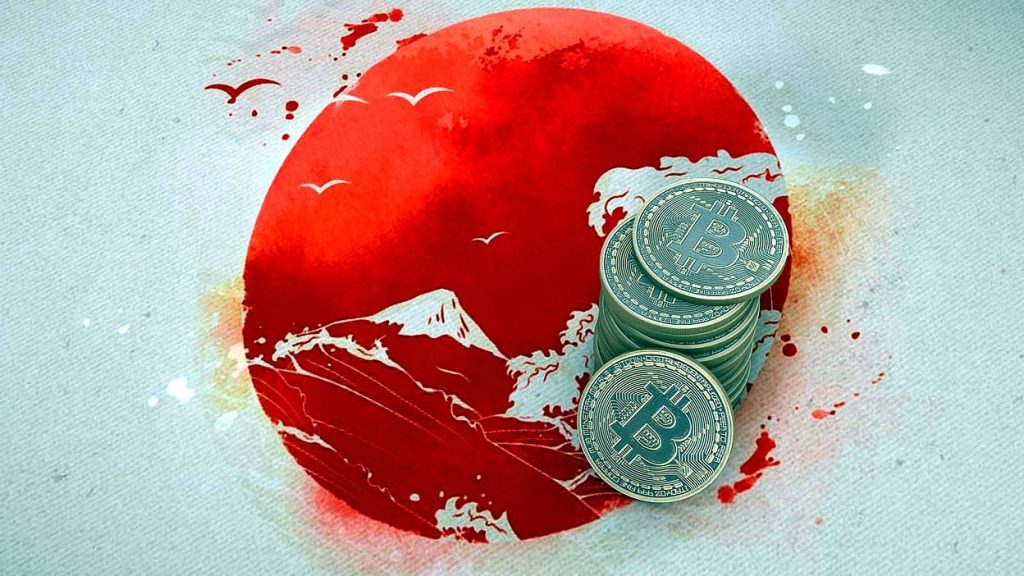Japan Pushes for Bitcoin Reserve to Strengthen Economy
14.12.2024 11:00 2 min. read Alexander Stefanov
Satoshi Hamada, a Japanese lawmaker, has repeatedly urged his government to establish a Bitcoin reserve, following a similar initiative proposed by former U.S. President Donald Trump.
As a member of Japan’s House of Councillors, Hamada has submitted this proposal over 200 times, advocating for the inclusion of Bitcoin in the nation’s financial strategy.
The push for Bitcoin reserves is gaining traction globally, with countries like Brazil and the U.S. also exploring similar approaches. Trump had previously outlined plans to create a Bitcoin reserve if re-elected, which, coupled with the bullish sentiment surrounding Bitcoin, helped push its price past $100,000—marking a 55% increase in just a month.
This surge has sparked more interest in Bitcoin from both institutional and retail investors, encouraging governments to consider the digital asset as part of their financial portfolios.
Hamada’s proposal underscores Bitcoin’s key characteristics—decentralization, neutrality, and independence from traditional financial institutions—making it an attractive option for a national reserve asset. He advocates for Japan to allocate a portion of its foreign exchange reserves into Bitcoin and other cryptocurrencies, seeing it as a safeguard against future economic uncertainties in an increasingly digital financial landscape. The lawmaker points to countries like the U.S. and Brazil, which are contemplating similar strategies, as examples of Bitcoin’s potential as a strategic reserve.
Despite Hamada’s repeated submissions, the Japanese government has not yet responded to the proposal. As global interest in Bitcoin reserves grows, Japan’s decision could set a significant precedent for other nations evaluating similar strategies.
-
1
Bitcoin Rises as Thousands of Altcoins Disappear
07.07.2025 13:00 2 min. read -
2
Bitcoin: Historical Trends Point to Likely Upside Movement
08.07.2025 16:00 2 min. read -
3
Strategy Buys 4,225 more Bitcoin, Pushing Holdings to 601,550 BTC
14.07.2025 18:34 2 min. read -
4
Bitcoin ETFs Top $50 Billion in Inflows, Marking Institutional Breakthrough
10.07.2025 11:00 2 min. read -
5
Bitcoin Shouldn’t Be Taxed, Says Fund Manager
07.07.2025 9:00 2 min. read
Here’s When the Bitcoin Cycle May Peak, Based on Past bull Markets
According to a new chart shared by Bitcoin Magazine Pro, the current Bitcoin market cycle may be entering its final stretch—with fewer than 100 days remaining before a potential market top.
Bitcoin Price Prediction: $130K in Sight After ‘Crypto Week’ Boost
Bitcoin (BTC) is once again hovering near its all-time high today as trading volumes have jumped by 13% in the past 24 hours upon breaking the $119,000 barrier, favoring a bullish Bitcoin price prediction. The top crypto has booked gains of 16% in the past 30 days and reached a new record at $123,091 earlier […]
Support Test or Breakout Ahead? Bitcoin Hovers at Key Decision Zone
Bitcoin is consolidating around $119,000 after last week’s all-time high above $123,000.
Strategy Launches Fourth Preferred stock Offering to Fuel Bitcoin Buys
Strategy Inc. (NASDAQ: MSTR) has announced the launch of its fourth perpetual preferred stock offering, marking a new phase in the company’s ongoing efforts to expand its Bitcoin treasury holdings.
-
1
Bitcoin Rises as Thousands of Altcoins Disappear
07.07.2025 13:00 2 min. read -
2
Bitcoin: Historical Trends Point to Likely Upside Movement
08.07.2025 16:00 2 min. read -
3
Strategy Buys 4,225 more Bitcoin, Pushing Holdings to 601,550 BTC
14.07.2025 18:34 2 min. read -
4
Bitcoin ETFs Top $50 Billion in Inflows, Marking Institutional Breakthrough
10.07.2025 11:00 2 min. read -
5
Bitcoin Shouldn’t Be Taxed, Says Fund Manager
07.07.2025 9:00 2 min. read


